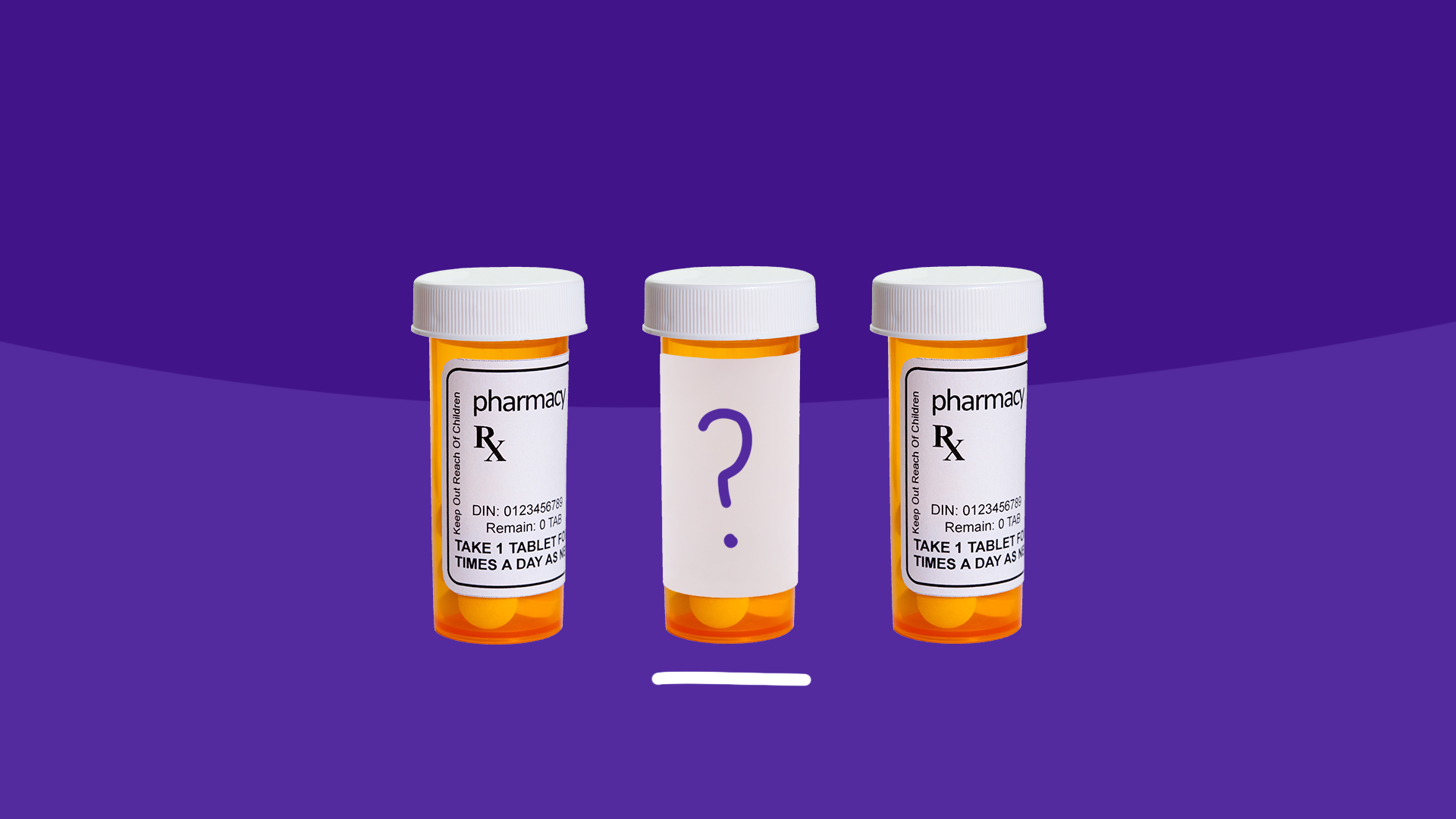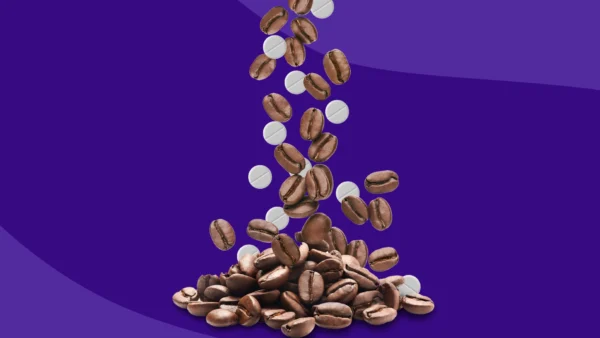Common Sucralfate side effects | Constipation | Serious side effects | How long do side effects last? | Warnings | Interactions | How to avoid side effects
Sucralfate (brand name Carafate) is a medication used to treat peptic ulcers, which are sores in the lining of the stomach or the first part of the small intestine (duodenum). It also treats gastroesophageal reflux disease (GERD), a condition in which acid from the stomach flows up into the esophagus. Sucralfate comes in tablet and oral suspension form. It works by forming a protective barrier over the ulcers or inflamed tissue.
Although sucralfate is generally well-tolerated, there are possible side effects associated with this medication, some of which can be quite severe. That’s why it’s important to understand what these potential side effects are before you take this medication.
Common side effects of sucralfate
There are very few known side effects of sucralfate. Adverse reactions to sucralfate in clinical trials were mild and rarely led to discontinuation of the drug. Constipation was the most common side effect, which was only reported by 2% of patients, according to the FDA. Less common (reported by less than 0.5% of patients) but possible side effects include:
- Diarrhea
- Dry mouth
- Nausea or gastrointestinal discomfort
- Gas/indigestion
- Vomiting
- Itching or rash
- Dizziness
- Headache
- Trouble sleeping
- Back pain
Constipation
The most common side effect of sucralfate is constipation. The medication works by binding to ulcers to protect them from further exposure to stomach acid, bile, pepsin, and bile salts. This gives the ulcers time to heal. Although the binding of sucralfate to ulcers is a good thing, it can also lead to constipation, which means that food and waste pass through the digestive tract too slowly. This is sometimes accompanied by straining, bloating, and cramping.
In clinical trials of more than 2,700 patients treated with sucralfate, less than 5% of participants experienced some form of side effects. Constipation was the most frequent side effect, with 2% of patients reporting it.
RELATED: Home remedies for constipation
Serious side effects of sucralfate
Sucralfate has a few rare, but potentially serious side effects, including:
- Anaphylaxis: Severe allergic reaction characterized by hives and swelling.
- Severe constipation: Difficulty passing stool and in some cases, bowel obstruction.
- Bezoar formations: When undissolved particles of the medication form one or more hard lumps, usually in the stomach; It can be very painful and cause nausea and vomiting.
- Hyperglycemia: The oral suspension form of sucralfate can be associated with increased blood glucose levels
How long do sucralfate side effects last?
Mild side effects associated with taking sucralfate, like constipation, generally don’t require any type of medical attention and should go away after a few days or weeks.
However, more serious side effects from this medication may require immediate medical attention. For example, if you have an allergic reaction to sucralfate or develop anaphylaxis soon after taking the medication, call 911 immediately. In the rare case of bezoar formation, you may need to have the medication removed from your body during an upper endoscopy.
To avoid any of these potential side effects, it’s important that you take the medication exactly as prescribed by your doctor. Don’t stop taking sucralfate or change the amount you take without getting medical advice from a healthcare professional.
Sucralfate contraindications and warnings
There are several contraindications for taking sucralfate, including hypersensitivity to any of the medication’s components. The benefits of treatment may outweigh the risks in certain patients.
Abuse, dependence, and withdrawal
Sucralfate does not cause a “high” and is not associated with any type of abuse or dependence. There are no withdrawal symptoms associated with stopping treatment with sucralfate, but you should talk with your doctor before doing so to avoid any adverse reactions.
Overdose
Just as with other medications, it’s possible to take too much sucralfate. Side effects of overdose include abdominal pain, constipation, nausea, and vomiting.
If you suspect an overdose, contact the poison control center or get emergency care immediately.
Pregnancy and breastfeeding
Sucralfate is safe to take during pregnancy. It is not known to cause birth defects and should be used during pregnancy only if the benefits outweigh the risk. Human studies show minimal systemic absorption of the drug.
Sucralfate is also safe to use while breastfeeding. While there is no human data available, the medication poses a low risk to the infant when used during this time. Mothers may need additional fluids while taking sucralfate to prevent constipation, which may occur with its use. It is not expected to affect breast milk production.
Children
Sucralfate is safe to use for the short-term (up to eight weeks) treatment of duodenal ulcers in children older than 12 months. Its safety and effectiveness have not been studied in children younger than 12 months.
Seniors
Clinical trials did not include enough participants older than 65 so it’s not clear if older adults will experience different side effects or a different reaction to the medication. Dose adjustments may be necessary for patients age 65 or older. It’s recommended to start at the low end of the dosing range and increase slowly, if necessary.
Dysphagia
Sucralfate is contraindicated in patients with dysphagia without a known cause, a condition in which patients have difficulty swallowing. This is because sucralfate can form a large, bezoar-like mass in the esophagus if it isn’t completely dissolved before it reaches this area of the body. On the other hand, dysphagia caused by acid reflux is a condition often treated with sucralfate.
GI obstruction
Patients with known GI obstruction, an intestinal blockage, shouldn’t take sucralfate. This medication can bind to food and other medications, which can lead to obstruction if the material cannot pass through the intestine.
Renal impairment
Kidney disease can affect the way sucralfate is metabolized in the body, which means that a dose reduction may be necessary. This medication should be used with caution in patients who have known kidney disease, kidney failure, or who are on dialysis treatment.
Type 2 diabetes
Sucralfate can affect blood sugar levels in patients with Type 2 diabetes. The medication has been reported to induce hyperglycemia in some diabetic patients. If the benefits of taking this medication outweigh the risk, patients should be carefully monitored. The amount of antidiabetic medication you take may need to be adjusted.
RELATED: What are normal blood glucose levels?
Aspiration risk
Sucralfate can increase the risk of pneumonia and other pulmonary complications in patients who are at increased risk for aspiration. Some conditions may affect the way a patient swallows or even prevents them from swallowing. In these cases, sucralfate should not be taken. Use caution in those with a tracheostomy, recent intubation, history of aspiration, or difficulty swallowing.
Impaired gag reflex
Conditions that may alter gag reflexes include certain types of anesthesia, Parkinson’s disease, history of stroke, or esophageal surgery. Taking sucralfate may make some of these conditions worse since patients with an impaired gag reflex are at increased risk of developing a bezoar if this medication is not completely dissolved before it gets to the stomach.
Sucralfate interactions
Some prescription drugs and over-the-counter medications, supplements, and herbal products may interact with the way sucralfate works. The most common drug interactions include:
- Baloxavir marboxil: May decrease the baloxavir levels in the blood.
- Deferasirox: May decrease the deferasirox levels in the blood.
Sucralfate also has the ability to bind other medications you take and decrease their absorption. Sucralfate may decrease the absorption of other drugs, such as:
- Naproxen
- Potassium phosphate
- Sodium phosphate
- Tetracycline
- Digoxin
- Cimetidine
- Ketoconazole
- Levothyroxine
This is not a complete list of drug interactions. Always discuss what medications you’re taking with your doctor before beginning treatment.
How to avoid sucralfate side effects
Sucralfate may cause a number of different side effects in some patients. Fortunately, there are ways to avoid these potential problems:
1. Take sucralfate as directed
The way you take sucralfate depends on the form you’re prescribed and the medical condition being treated. If you have a prescription, always take the medication as directed by your doctor. Be sure to read the drug information that’s provided to you at the pharmacy.
For oral suspension: Shake the liquid well before each use. You should always use the dosing syringe or cup that’s given to you with the medication. Measure each dose with the syringe or cup, and don’t use a household spoon since it won’t give you an accurate reading. Take this medication exactly as instructed by your doctor. The oral suspension is to be taken by mouth only. Never share or take this medication in any other way.
For oral tablets: Swallow the medication whole with enough water to ensure it’s completely swallowed. Do not crush, chew, or break the pill before swallowing, unless directed otherwise by our doctor.
2. Take sucralfate on an empty stomach
Sucralfate works best when taken on an empty stomach. It should be taken at least two hours before or after a meal.
3. Tell your healthcare provider about all medical conditions and medications
Be sure to tell your doctor about any medical conditions you may have. Sucralfate is contraindicated in those with a history of certain conditions like:
- Dysphagia
- GI obstruction
- Renal impairment
- Type 2 diabetes
- Aspiration risk
- Impaired gag reflex
Tell your doctor and pharmacist about any prescription and non-prescription medications you’re taking, including over-the-counter and herbal supplements. Some medications interact with the way sucralfate works within the body.
4. Store at room temperature
You should always store sucralfate at room temperature, away from heat sources and moisture. Always keep the bottle tightly closed when not in use and out of reach of children.
5. Avoid taking any other medications within two hours before or after taking sucralfate
Sucralfate can decrease the absorption of certain medications and supplements. Therefore, you shouldn’t take it within one to two hours of other prescriptions, over-the-counter medications, or herbal products.
6. Avoid taking antacids within 30 minutes of taking sucralfate
Sucralfate can decrease the absorption of some antacids if taken together. Thus, you should never take antacids within 30 minutes of taking sucralfate. Ask your doctor which antacids are the best to take during treatment with this medication.
7. Take the missed dose as soon as possible
If you miss a dose, take the missed dose as soon as possible. It’s important to never take multiple doses at the same time. If you’re not able to take the missed dose before the next dose, skip it and return to your regular dosing schedule.
8. Finish the entire treatment cycle
Don’t stop taking sucralfate just because your symptoms improve. Don’t skip doses or stop treatment early even if you’re feeling better after the first few weeks. Always complete the full course of treatment, even if it means taking medication for a longer time than prescribed.
Sucralfate is generally prescribed for short-term treatment, between six and eight weeks. It’s important to finish the entire treatment course to ensure any ulcers are healed and to prevent them from returning.
9. Report side effects immediately
While sucralfate is generally a safe medication, and the list of potential adverse effects is not as long as some other medications, you should always report any symptoms that may be related to sucralfate.











